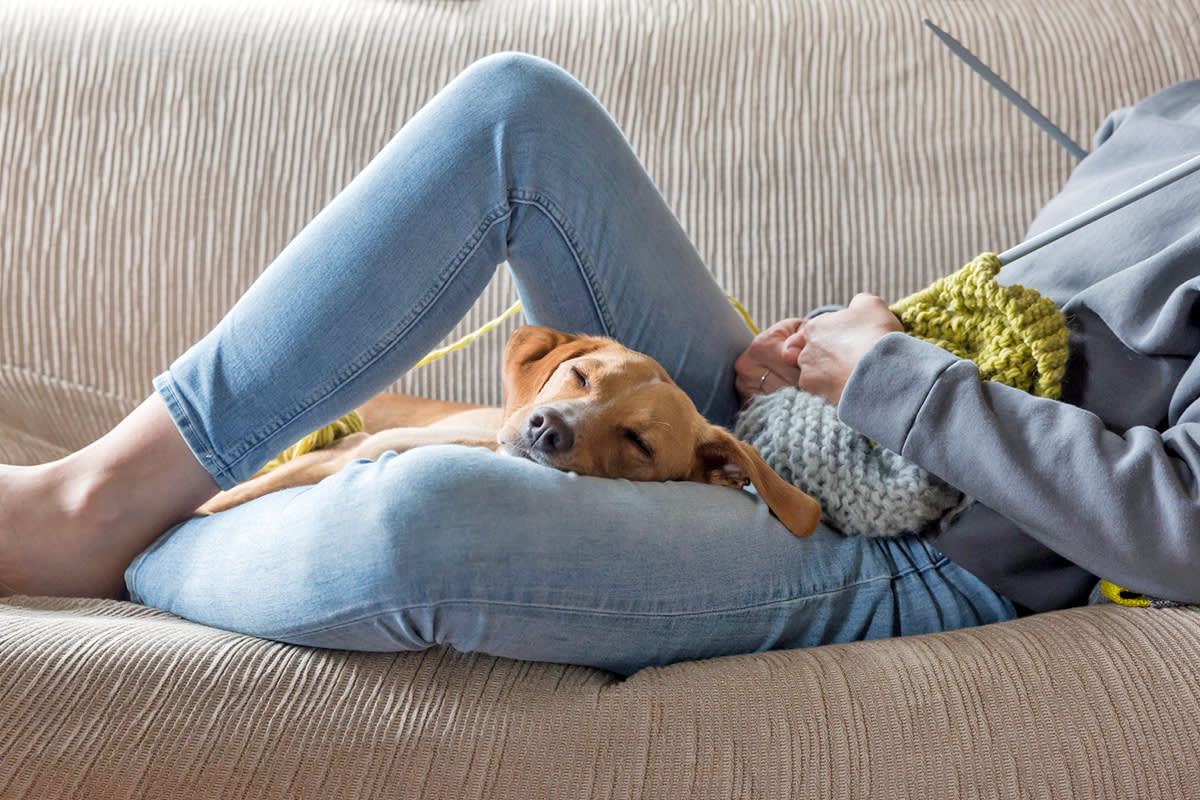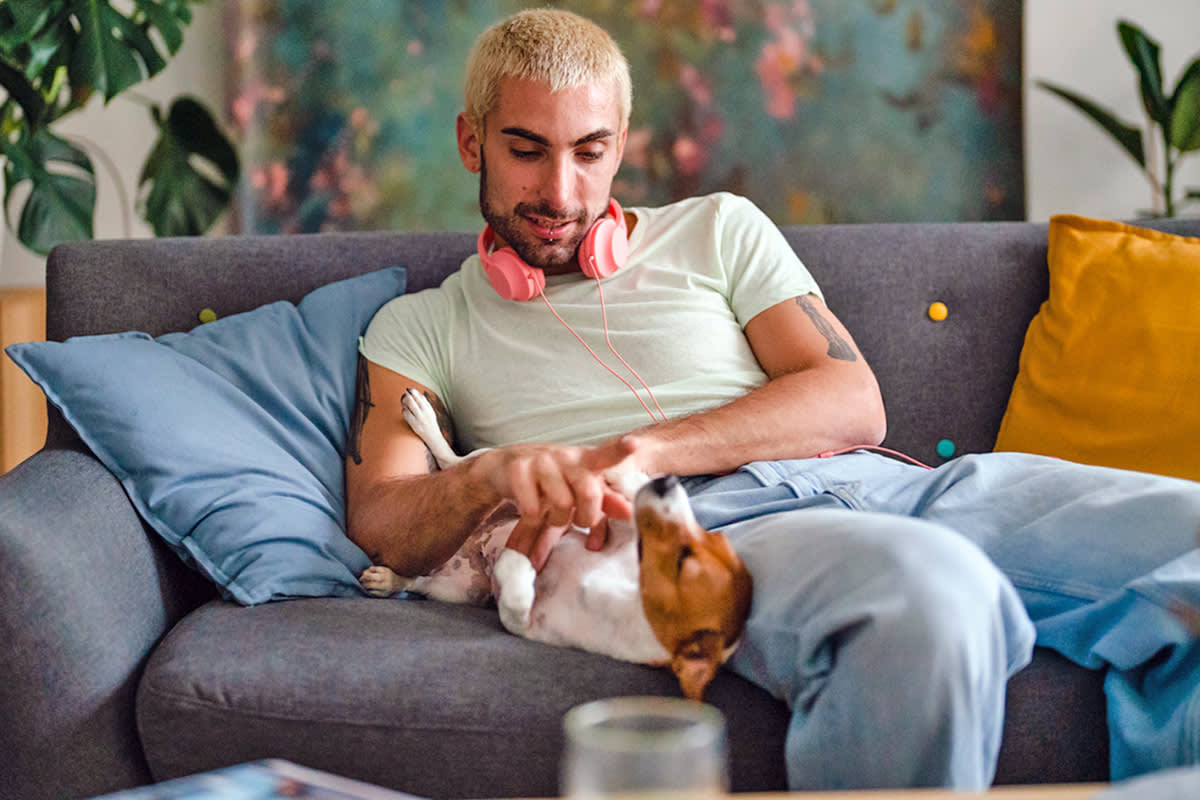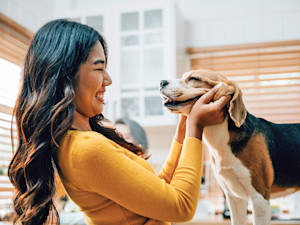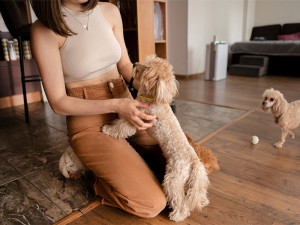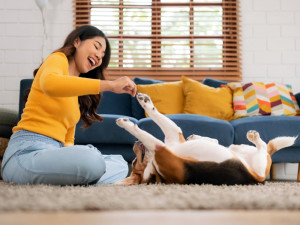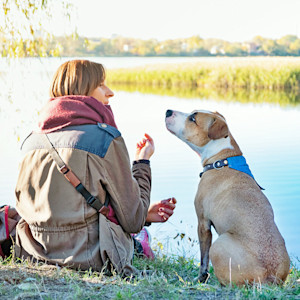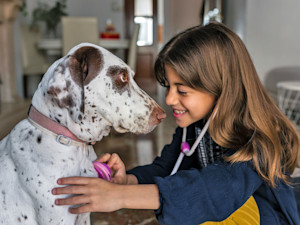You and Your Dog’s Heart Activity Match up When You Spend Time Together, New Study Finds
It’s like U2 said: Two hearts beat as one...
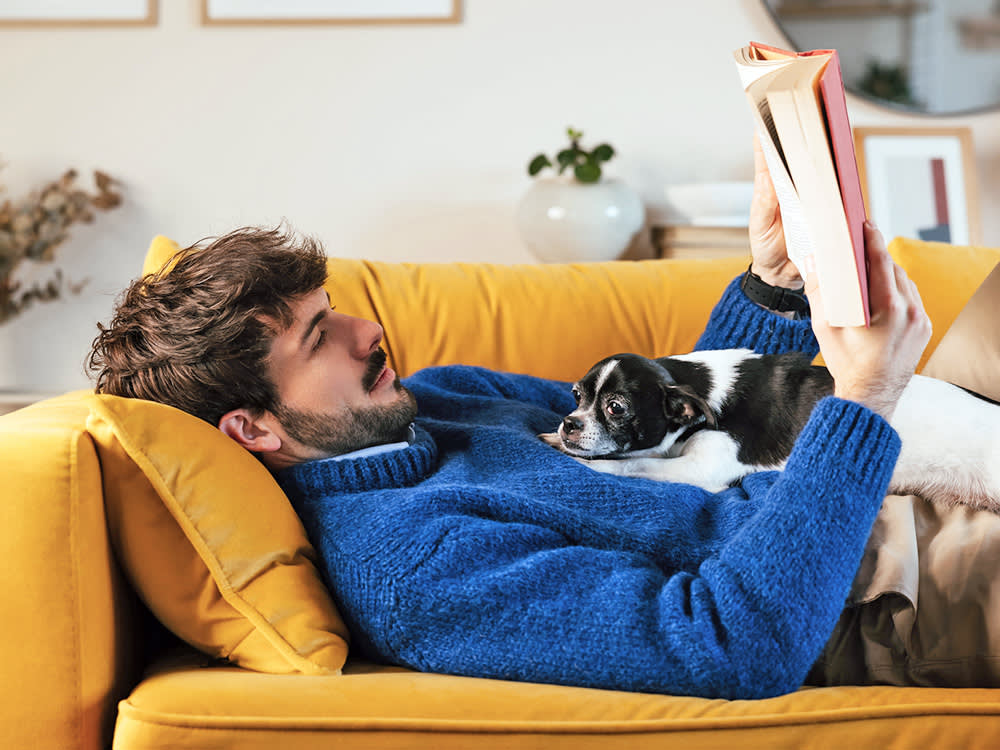
Share Article
Ask any dog parent, and they’ll tell you: Their heart beats for their pup. As it turns out, our hearts also beat with our pups’ — and their hearts beat with ours. A new study published in Scientific Reportsopens in new tab found that heart rate variability (HRV) — the variation in timing between each heartbeat — matches up between dogs and their humans when they spend time together.
The study
Researchers at the University of Jyväskylä studied 30 medium-sized dogs from 13 different breeds. The dogs’ parents were surveyed on their personalities, including their levels of extroversion and negative affectivity.
During the experiment, dogs and their humans were connected to an ECG to measure heart rate variability, the small variations in time between heartbeats. The experiment started and finished with a resting period. In between these periods, the dogs and their humans were given four tasks: stroking, training, sniffing, and playing.
They found that the difference in the dog and humans’ heart rate variability correlated significantly during several of the tasks, such as playing and stroking. They also matched up during the baseline resting periods and at times of free interaction, leading the researchers to conclude that the mirroring wasn’t solely dependent on the tasks. “These findings suggest emotional co-regulation of the HRV of dogs and owners beyond their correlations due to synchronized physical activity,” Aija Koskela, the study’s lead author, wrote.

Interestingly, dog parents who reported higher levels of negative affectivity were more likely to feel close emotional bonds with their dogs, which affected the dogs’ physiological responses. These pet parents were more likely to have high HRV, and so were their dogs. “In fact, owner-related factors appear to affect the relationship even more than the characteristics of the dog,” Koskela wrote.
Previous studies have shown that HRV levels between emotionally connected humans, including mothers and infants,opens in new tab synchronize during social interactions. The researchers believe that emotional connection is why dog and human HRV synchronizes, too.
This finding only held true between dogs and their pet parents — not between dogs and random humans. This proved that the dog and human heartbeats weren’t matching solely due to external environmental factors; there was a relationship component at play. “We conclude that the physiological and emotional mechanisms involved in strengthening attachment bonds between humans also support the emotional relationship between humans and dogs,” Koskela wrote.

Sio Hornbuckle
Sio Hornbuckle is the Assistant Editor at Kinship, where they frequently write for the site. As a writer, they specialize in pet news, animal science, and pop culture. They live in New York City with their cat, Toni Collette.
Related articles
![Woman looking into her Beagle dog's eyes.]()
Dog and Human Brains Sync When They Stare Into Each Other’s Eyes, New Study Finds
You and your pup are on the same wavelength—seriously.
![A woman sitting on a floor playing with her dogs.]()
How to Know if Your Dog Has Imprinted on You
If they’re following you around like your shadow, there’s a reason for that.
![Man hugging his fluffy white dog happily]()
Chemistry Between People and Dogs Is Real (It’s Science)
How the “love hormone” oxytocin connects us with our pups.
![Woman playing with her beagle dog inside.]()
Playing With Your Dog Can Help Their Brain Stay Healthy Longer, New Study Finds
A good old game of tug of war could help prevent doggie dementia.
![Woman talking to her dog outside at the park.]()
50% of Pet Parents Talk to Their Dogs as Much as Friends—Sound Familiar?
And many chat with their pups more than their human buddies.
![Girl playing with her dog at home.]()
Growing up With a Dog Is Good for Your Gut, New Study Finds
People who are raised with pups are less likely to develop Crohn’s disease, according to new research.
